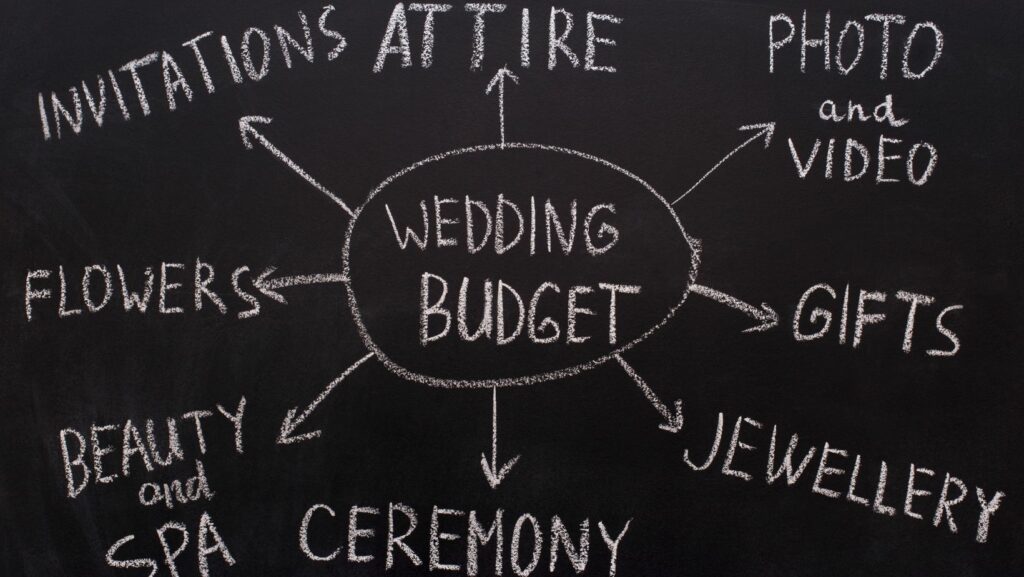Planning a wedding or any significant event is no small feat. It demands a perfect blend of organization, creativity, and attention to detail. Whether it’s a fairytale wedding or a corporate gala, the success of any event hinges on meticulous planning and execution. That’s where the magic of professional event planning comes into play, transforming visions into beautifully orchestrated realities.
Wedding and Event Planning
In the realm of event management, wedding and event planning stands out as particularly complex, involving meticulous attention to detail and exceptional organizational skills. This section explores the intricate roles and common challenges faced by planners in this dynamic industry.
The Role of a Wedding and Event Planner
 A wedding and event planner orchestrates the intricate aspects of ceremonies, receptions, and other events, ensuring every detail aligns with the client’s vision. They serve as the central point of communication for all vendors, including caterers, photographers, and entertainers, streamlining the coordination process. Planners also manage budgets, schedules, and logistical details to prevent any last-minute surprises. Effective wedding and event planners often possess strong interpersonal skills, allowing them to negotiate effectively on behalf of their clients and handle any stress with poise.
A wedding and event planner orchestrates the intricate aspects of ceremonies, receptions, and other events, ensuring every detail aligns with the client’s vision. They serve as the central point of communication for all vendors, including caterers, photographers, and entertainers, streamlining the coordination process. Planners also manage budgets, schedules, and logistical details to prevent any last-minute surprises. Effective wedding and event planners often possess strong interpersonal skills, allowing them to negotiate effectively on behalf of their clients and handle any stress with poise.
Key Challenges in Planning
Planning a wedding or event comes with its unique set of challenges. One of the primary difficulties is managing the expectations of multiple stakeholders, including clients, vendors, and event attendees. Planners must balance these varied expectations while adhering to a strict budget and timeline. Additionally, unforeseen circumstances, such as weather disruptions or vendor cancellations, require quick thinking and effective problem-solving to ensure the event remains on track. Another significant challenge is staying updated with the latest industry trends, as clients often seek innovative and memorable elements for their events.
Essential Elements of Wedding Planning
Choosing the Right Venue
 Selecting the ideal venue sets the stage for the entire wedding, since it influences the atmosphere, style, and logistics of the event. Venues should not only align with the wedding’s theme but must also accommodate the expected number of guests comfortably. Factors such as location accessibility, available dates, and venue capacity are vital. Additionally, it’s important to consider what the venue includes in their packages, like catering and audio-visual equipment.
Selecting the ideal venue sets the stage for the entire wedding, since it influences the atmosphere, style, and logistics of the event. Venues should not only align with the wedding’s theme but must also accommodate the expected number of guests comfortably. Factors such as location accessibility, available dates, and venue capacity are vital. Additionally, it’s important to consider what the venue includes in their packages, like catering and audio-visual equipment.
Designing a Wedding Theme
A cohesively designed wedding theme enhances the aesthetic appeal and ambiance of the event. It involves selecting colors, decor, and elements that reflect the couple’s personality and preferences. The theme should permeate every aspect of the wedding, from the invitations and floral arrangements to the table settings and the bridal party’s attire. Planners must ensure that the theme remains consistent and tastefully executed, creating a visually stunning and cohesive environment.
Managing the Guest List
Compiling the guest list is a crucial task that impacts several other planning areas, including budget and venue choice. It’s essential to balance the couple’s desires with practical considerations of space and finances. Planners can use digital tools to track RSVPs and dietary preferences, simplifying the communication process.
Event Planning Details
Selecting the Ideal Venue
 Choosing the right venue plays a major role in setting the event’s tone. Venues must offer both aesthetic appeal and functional utility, accommodating the number of guests comfortably. Popular venue types include hotels, banquet halls, and outdoor spaces like gardens or beaches. The selected venue affects crucial aspects such as decor possibilities, catering options, and overall event ambiance.
Choosing the right venue plays a major role in setting the event’s tone. Venues must offer both aesthetic appeal and functional utility, accommodating the number of guests comfortably. Popular venue types include hotels, banquet halls, and outdoor spaces like gardens or beaches. The selected venue affects crucial aspects such as decor possibilities, catering options, and overall event ambiance.
Designing a Cohesive Theme
A well-defined theme ensures that all elements of the event, from invitations to table settings, harmonize to create a visually appealing experience. Themes can range from classic elegance to modern chic or cultural specificity, depending on the couple’s preferences. Professional planners often use mood boards to visualize the concept and maintain consistency in the event’s look and feel.
Managing Guest Lists and Invitations
Effective guest list management is essential for controlling the event’s scale and ensuring all invitees are properly accounted for. Planners need to coordinate with clients to confirm guest counts, send out invitations, and track responses. This process also involves seating arrangements and catering counts. Advanced software tools or specialized apps can streamline these tasks, ensuring accuracy and efficiency.

